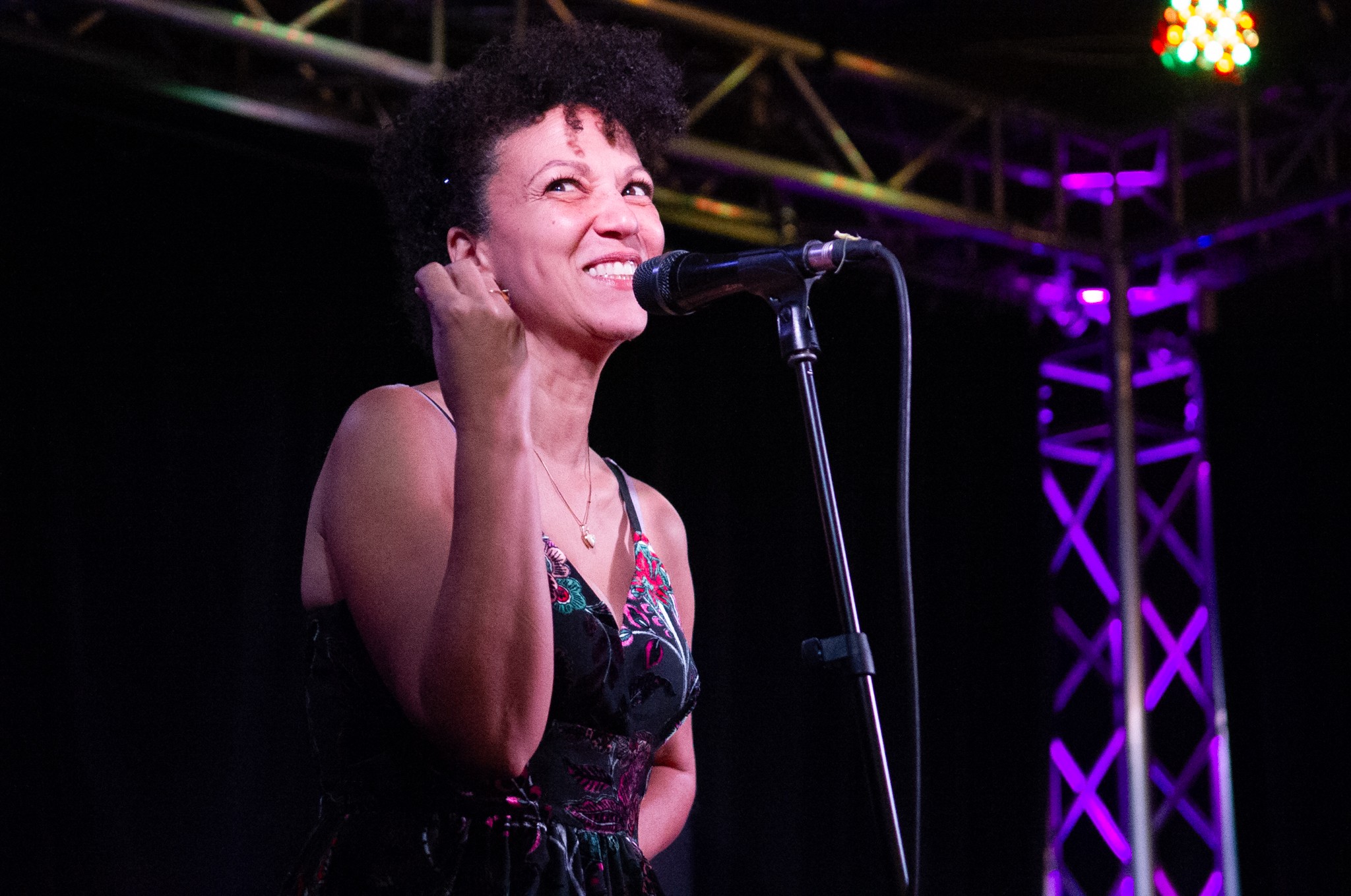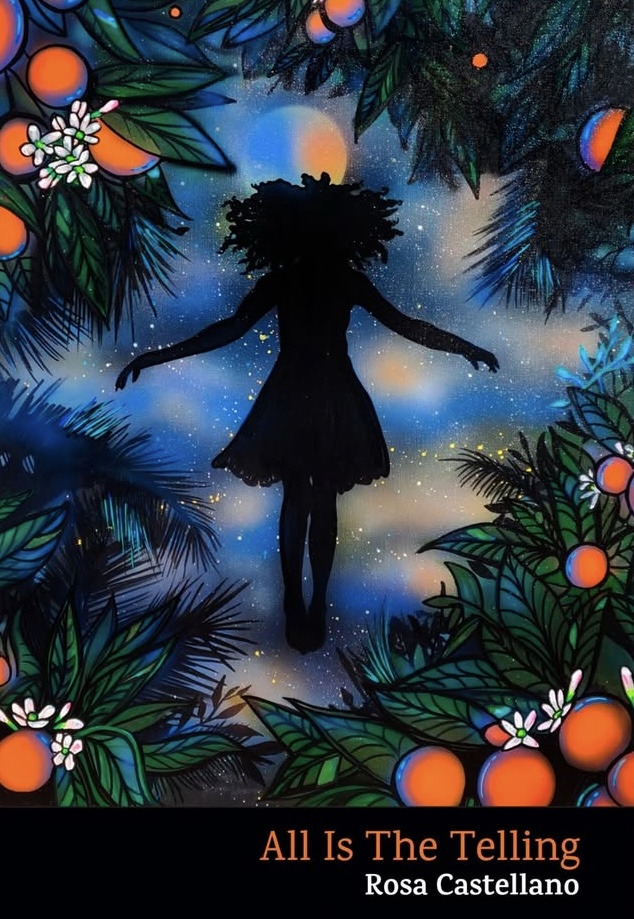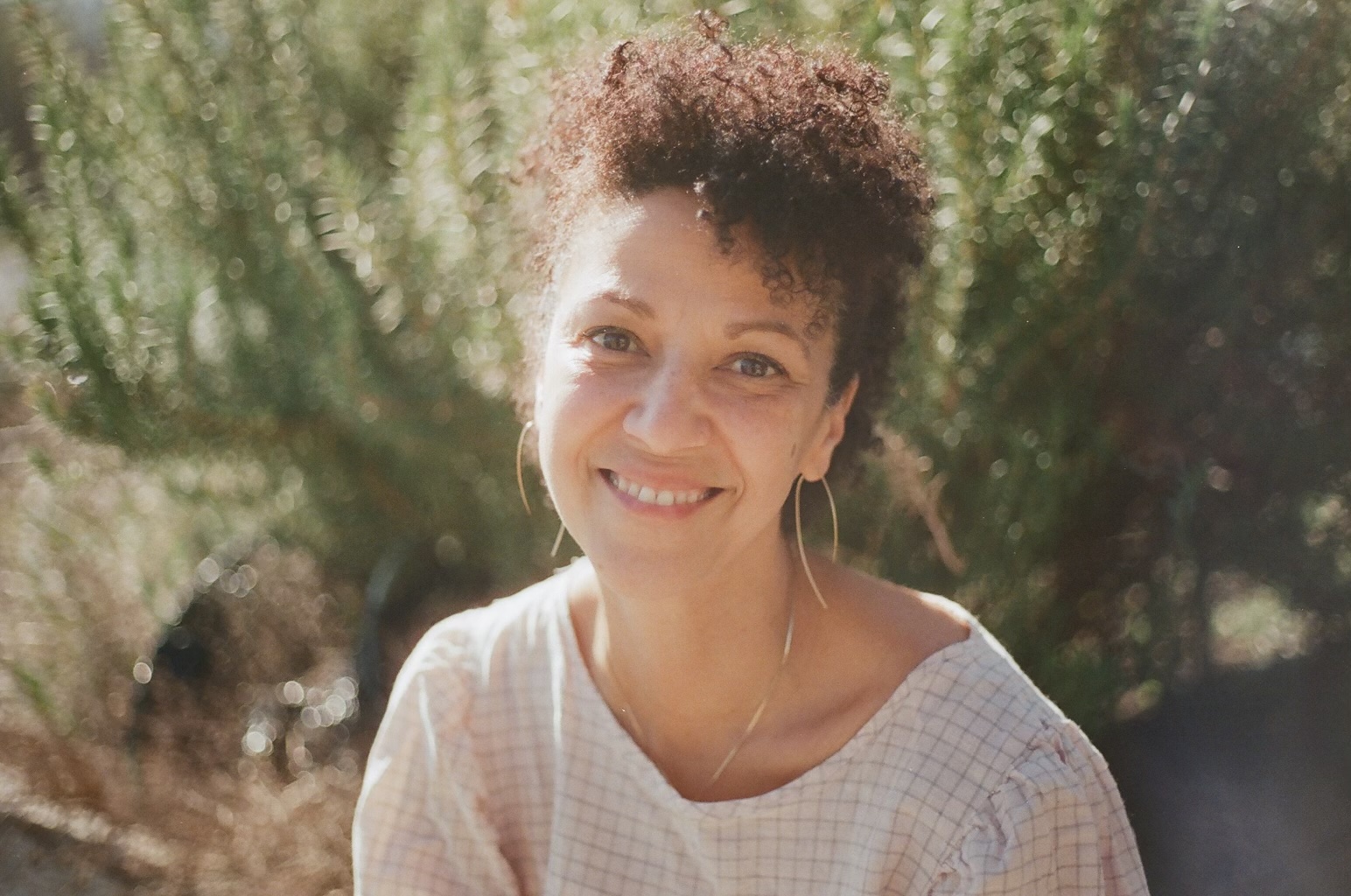We were lucky to catch up with Rosa Castellano recently and have shared our conversation below.
Rosa, thanks for taking the time to share your stories with us today What’s been the most meaningful project you’ve worked on?
I am lucky to be involved in the work of writing and creating community around writing and this question is hard because, sometimes, seeing friends’ projects come together is as exciting as when one of my own reaches a finish line. But this year, I did something I’ve never done before, I published a book! A collection of poems that came out this Spring from Diode press and when I hold All is the Telling in my hands and look at the cover art which my brother, muralist Artist ESH made, I know that this book is collaborative.
We writers mostly work in a solitary fashion, but we are receptacles for all the words and poems and stories we’ve accumulated and internalized and yes––the words in the book came from me (mostly lol) but our bodies carry so much and when we put our stories on the page, sometimes the shapes they take surprise us. For example, I didn’t set out in this collection to pay homage to Ntozake Shange’s “for colored girls who’ve considered suicide when the rainbow is enuff” but I absolutely did. In part, unconsciously because her work meant so much to me as a young person and to my journey as a writer but also because of the way she put black female bodies into motion on a stage in a poem. Her creation of the choreopoem helped me understand the possibilities for my own poem/play which is the middle section of my book.
And putting together a collection of poems so that they create something that amounts to more than the individual poems was wild. Like lots of folks, I was caught up in the grind of making work and then sending it out for publication in journals. Sometimes it’s hard to know when you have a book. But a friend encouraged me to organize what I had into a manuscript and that’s when I discovered the threads woven through the poems I’d been writing. It was hard but it was fun figuring out what stories the poems wanted to tell individually but also the story they told when taken together.

Rosa, before we move on to more of these sorts of questions, can you take some time to bring our readers up to speed on you and what you do?
I’m Rosa Castellano, a poet and teacher living in Richmond, VA. Currently, I’m the Writing Community Coordinator for the Visual Arts Center of Richmond which means that in addition to making my own poems and helping others find theirs, I get to work on creating and deepening community engagement through writing events. In 2022, I co-founded the Richmond Poetry Festival and it’s been amazing to form partnerships with folks who are working in similar spaces/communities and to watch the event grow in scope and audience. Making a space where folks can take a free workshop, share their work or just listen and support other poets, brings so many different kinds of people into the same room. And I get to help, facilitating conversations and connections that foster curiously and empathy which are the seeds really, of how we survive.
We often hear about learning lessons – but just as important is unlearning lessons. Have you ever had to unlearn a lesson?
I wish understood earlier, that failure is not only an important part of the journey but in it’s own way a kind of success. For the longest time, I viewed failing as something negative about me and/or about my work and often, felt that it meant that I had wasted my time and resources on the wrong thing.
For example, a few years back, I received a year long-fellowship from the Visual Arts Center of Richmond and used that time to draft a historical middle-grade novel. I’m primarily a poet and not a novelist, so it was my first time drafting a novel and of course I made lots of mistakes and wandered with my characters down paths we had to back-track as I learned the true path my story needed to follow. At the end of the year, I had a draft of a novel but not a completed book.
This was not my plan. I had hoped to be in a position to begin querying agents and instead, the book needed serious revision. Instead of celebrating the skills I’d gained doing this work, and the progress I’d made, I worried. Believing that I had wasted precious time researching the time period and writing a novel that I now knew I wasn’t going to finish.
At the end of the residency, I wanted to go back to writing poems. So, I put the novel away, regretting the time I’d invested in it until I saw how my poems were informed by the work of the novel. From their descriptive grounding in place–many of the poems from my first collection are like the novel, filled with the lush, swampy landscape of Florida. And the poem/play which makes up the middle section of my book tells the story of the two sisters from my novel, one who passes for white. But in this version they tell their story in poems, as grown ups instead of kids. That could not have happened if I hadn’t written their backstories and done the work of building their world–which doesn’t appear in the poems but provided the scaffolding for the play.
Do I wish I could have just started with the poem/play–Yes! But also, no. I learned a lot from plotting and drafting a novel but more than that, I learned that failing–working for a year on a book, with nothing publishable to show for it–was necessary and helpful to my practice. It allowed me to stretch myself and my craft from a place that was familiar to one where more was possible.
Writing reminds us, that mistakes are part of the journey, that all of us, are works in progress. So when we take risks with our work and open ourselves up to mistakes, to projects outside of our comfort zone, we get the chance to grow. And then, to be reminded that our worth and the value of our work cannot be measured in rejection letters or by works published.
Bringing truth to the page––writing what only we can write and then working to make it as close to the thing it’s meant to be as we can? That’s the process of making art and for me, it is beautiful and bravery inducing way of meeting the world.

What can society do to ensure an environment that’s helpful to artists and creatives?
I love this question! The number one thing that people can do, in my opinion to support artists and creatives is to show up! Go to poetry festivals, book fairs, readings, slams, youth literary events with the idea that the work the writers have done is for you.
Sometimes we put writing–poetry in particular on a pedestal, like art in a museum. Believing that poetry as something separate from the everyday and requiring specials skills or knowledge to access it, but most poets working today are writing about their “regular” lives in “regular” ways–which is to say, that most poems will offer up a way of being in world through images and feelings evoked on a page that are relevant and relatable and have something to give to their listeners/readers.
Communal listening, being part of an audience, taking what makes sense to you from a poem or a performance gives each of us a chance to see ourselves and our world in ways that can challenge, inform or change us.
So, go to a reading and if you can, pick up a poetry book. The library is a fantastic place to start. Go to the 811’s, pull a handful of books from the shelves. You can sit in the stacks and just read the first poem or two or allow the book to fall open and see what resonates.
Also, try writing. Poetry like art, is for everyone. When you do something yourself, you can understand it in a way that’s different from simply being in the audience, whether listening or reading. All of us are collections of stories, some of us write ours down and share them as widely as we can. But even if that’s
not you, if poetry hasn’t been your thing trying it–telling part of your story to a blank page, even if it’s just in a journal that only you will see, means that you are connecting to a part of brain, a part of yourself in a way that can unlock doors and quite possibly surprise you.
Contact Info:
- Website: https://www.rosa-castellano.com/
- Instagram: https://www.instagram.com/hornsbyrk?igsh=MWt0MzhmZjl3bWoxaw%3D%3D

Image Credits
@musemagicmarketing, sullivan summer


